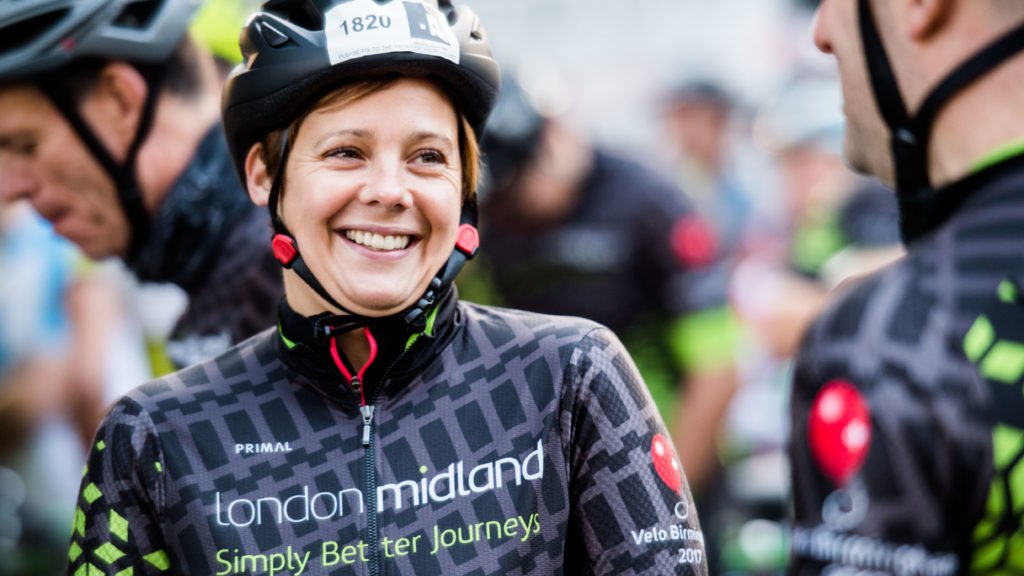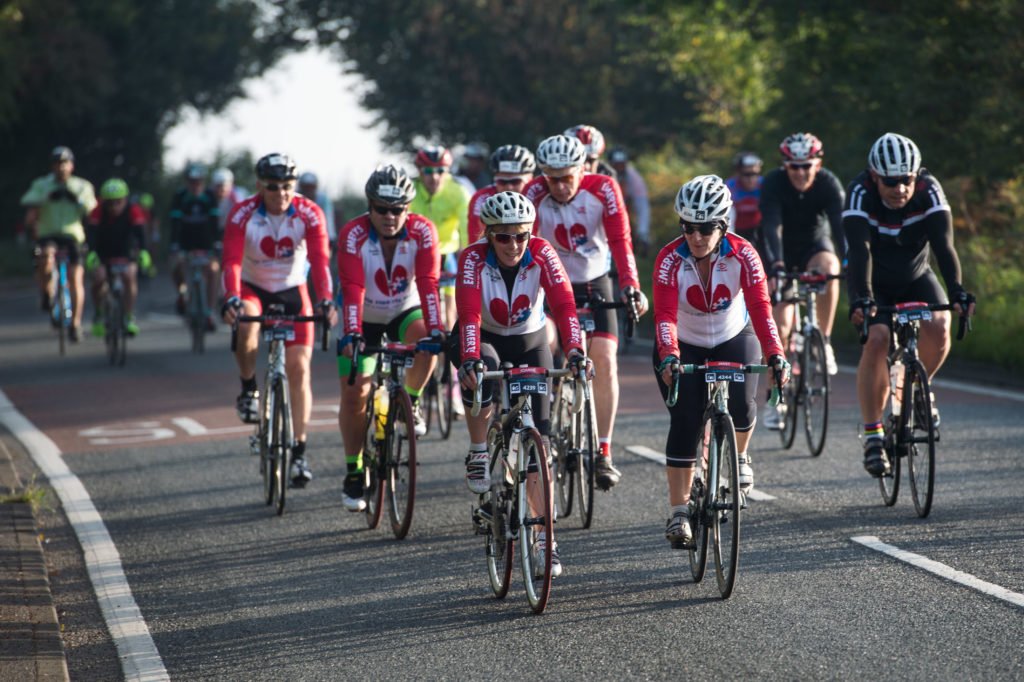Today (27th September 2018), it was announced that Vélo Birmingham & Midlands, the UK’s second biggest closed road sportive, will return on Sunday 12th May 2019. Notably, organisers have outlined ambitious plans to increase the number of women taking part in the sportive. With a target of 50% by the time Birmingham hosts the Commonwealth Games in 2022, compared to the starting point of just 15% when the event was first and last held in 2017, we’re keen to understand why more women don’t ride sportives and what can be done to change this trend. 2018 has been an important year for women in cycling, with more of the industry starting to taking note of our presence and involvement; or rather, our lack of. Across seven UK cities – Belfast, Birmingham, Bristol, Cardiff, Edinburgh, Greater Manchester and Newcastle – Sustrans revealed a worrying gender divide in cycling participation. For example, only 12% of women cycle once a week and 73% never ride a bike at all. More concerning still is the fact that only 27% of women think cycling safety in their city is good, which immediately shows a possible reason for why participation is so low.
2018 has been an important year for women in cycling, with more of the industry starting to taking note of our presence and involvement; or rather, our lack of. Across seven UK cities – Belfast, Birmingham, Bristol, Cardiff, Edinburgh, Greater Manchester and Newcastle – Sustrans revealed a worrying gender divide in cycling participation. For example, only 12% of women cycle once a week and 73% never ride a bike at all. More concerning still is the fact that only 27% of women think cycling safety in their city is good, which immediately shows a possible reason for why participation is so low.
The study was focused on cycling as a means of transport, looking at activity levels and cycling infrastructure within these cities. However, this gender divide is prevalent in all areas of the cycling industry, including participation in sportives.
Determined to put the wheels of change in motion, Vélo Birmingham and Midlands have this morning announced ambitious plans to increase the number of women taking part in their sportive to 50% by the time Birmingham hosts the Commonwealth Games in 2022.
At the Cycle Show in Birmingham, a panel consisting of Lord Sebastian Coe (Chairman of organisers CSM), Ian Ward (Leader of Birmingham City Council), local boy Martin Johnson CBE (England Rugby World Cup winning captain and fanatical cyclist) and the event’s female ambassador, cycling commentator Rebecca Charlton, spoke about the event’s aspirations to have an equal number of men and women on the start line.
The 50/50 goal first came about after the sell out success of the inaugural Velo Birmingham and Midlands was dampened by the realisation that only 15% of entrants were female. A low percentage, but apparently a standard for cycling events across the UK. In running events, however, it’s typical to see closer to a 50/50 split on the start line, and so the organisers were inspired to achieve gender parity in their event, too. As the second largest closed road sportive in the UK, they felt that the size of the event means it has the potential to be a trailblazer for change.
“We do everything we can to give everyone a really positive experience,” explained Ali Foster, Head of Event Marketing at CSM (organisers of the event). “With support from a team of 100 domestiques along with generous feed stations and the all important closed roads increasing the safety of the riders, the atmosphere of 15,000 riders is an amazing experience to be involved in. What’s more, our size and status mean that we have a duty of care and responsibility to do our bit. We need to do better as a whole so we want to inspire other sportives to aim for the same target.”
With the goal being higher female involvement, it might have seemed an obvious choice to launch a female only sportive instead. Yet the intention is to make Vélo Birmingham and Midlands as inclusive as possible, boosting the numbers not just of women, but also of different ages, ethnicities and physical abilities.
“We explored having a female-only wave as a compromise, but it transpired that women want to be in any wave and still have the same good experience,” explained Ali. Segregating women into their own waves – or even their own events – sends a much different message than improving the overall experience for all entrants, regardless of what wave you are in and who else is in that wave with you.
Ali was quick to note that as a team of men at CSM, none of them wanted to make any assumptions on behalf of women, which is why they’re working closely with the HSBC UK Breeze network to understand what’s preventing women from cycling and entering sportives. This includes collaborations with brands, local clubs and welcoming feedback from both male and female entrants. The Vélo Birmingham & Midlands team clearly have an ambitious target on their hands and have their work cut out, but what’s the point of a goal if it’s not an ambitious one? As they work to do their bit, we all need to continue to support more women coming into cycling at every level of the pyramid.
The Vélo Birmingham & Midlands team clearly have an ambitious target on their hands and have their work cut out, but what’s the point of a goal if it’s not an ambitious one? As they work to do their bit, we all need to continue to support more women coming into cycling at every level of the pyramid.
Ultimately, I feel it’s a numbers game. Fewer women on bikes means fewer women to get involved in sportives in the first place and studies have shown time and again that safety is a key barrier to women taking up cycling. To what extent this is a perceived problem (i.e. the fear of danger is worse than the danger itself) is unclear, but we’ve all experienced enough close passes, deep potholes and less than ideal road layouts to know that these fears are not unfounded, particularly for a new cyclist. Without the improvements in infrastructure to make women feel safe on a bike it’ll be an uphill battle to push these numbers up and encourage them to cycle as a mode of transport before they can consider it as a hobby or sport.
We also need to keep pushing for gender parity in professional cycling and happily, steps have been made to level the playing field in the UK this year. For example, in the Tour of Britain at the start of this month, the prize money was increased to match that of the men’s and in 2019 the women will ride an additional stage. The UCI also announced this week that from 2020, professional female riders racing in a new division will receive a minimum salary, although the amount of this has not been revealed. I’m keen to come back to Vélo Birmingham & Midlands after 2019’s event in May and find out the difference that this goal has made to their entry numbers, so watch this space.
If you you are planning to take part in a sportive, find out how our Bicycle Insurance can cover your equipment against theft and damage, worldwide.